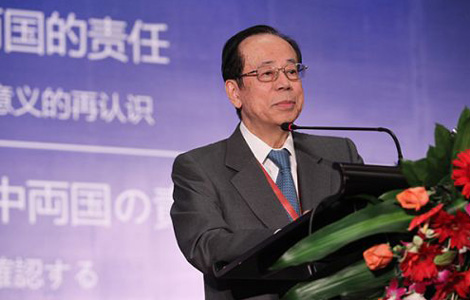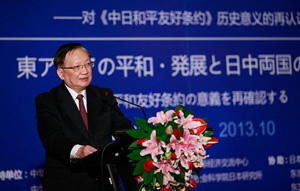Bigotry has little currency in Hong Kong
Updated: 2013-10-29 07:18
By Hong Liang (China Daily USA)
|
||||||||
Mainland people, especially those working and living in Hong Kong, have every right to be outraged by the crude and insensitive comments purportedly made by native Hong Kong netizens on the unfortunate accident that killed 26-year-old Liu Han from Chuxiong in Yunnan province.
The accident was all the more sad because she exemplified the so-called new Hongkonger, those mainland talents choosing to stay and work in Hong Kong after graduating from local universities. Liu was said to have found a well-paying job after graduating from the University of Hong Kong.
It was reported that she was appreciated by her employer and liked by her fellow workers. But news of her death in a traffic accident sparked a flurry of anti-mainlander tirades on the Internet from supposedly Hong Kong people. There were reportedly more than 1,000 such offensive messages branding Liu, and other mainlanders in Hong Kong, locusts for stealing jobs and devouring resources.
Such malicious accusations touched off a media firestorm on the mainland. Many commentators vented their pent-up anger at Hong Kong people's bias against mainlanders. As a result, the entire population of Hong Kong, numbering 7.5 million at the latest count, was tarred with the same brush.
Of course, modesty and self-effacement are not necessarily virtues of Hong Kong people, but bigotry is an extreme attitude that usually has little currency in Hong Kong.
It is understandable that some Hong Kong people get upset by the big crowds of mainland tourist behaving in ways that are sometimes unfamiliar and speaking dialects that many locals don't understand. Reports of mainland shoppers clearing the shelves of infant milk powder and other essential commodities have raised concern among the Hong Kong public for obvious reasons. Neither can Hong Kong people be reasonably expected to ignore studies that show the influx of mainland money was responsible, at least partly, for driving up local property prices.
Most Hong Kong people, some of whom have actually benefited from the boom in tourism and retail, have remained open-minded in assessing the impact brought about by the progress in the inevitable social and economic integration with the mainland.
There are times when Hong Kong people exhibit their characteristic crudeness in words and actions that are seen to have offended the sensibility of their mainland counterparts. This is wrong, of course. It will take years of public education to smooth out Hong Kong people's rough edges.
Sometimes such a display of insensitivity has been greatly played up by the mainland media, further strengthening the misconception of widespread discrimination in Hong Kong against mainlanders. Discrimination does exist. But it's only limited to a small minority of people who are left behind for different reasons.
It's equally wrong to label everyone in Hong Kong a bigot because of those 1,000 or so disparaging messages that the vast majority of Hong Kong people found offensive as well. There are scumbags in every society. Their number in Hong Kong is thankfully small.
Indeed, Hong Kong is not a mean city as it is sometimes made out to be.
The author is a senior editor with China Daily. jamesleung@chinadaily.com.cn
(China Daily USA10/29/2013 page11)
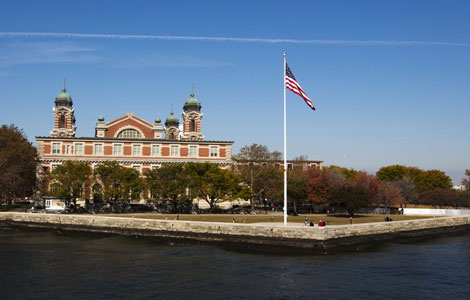
 Ellis Island reopens for 1st time since Sandy
Ellis Island reopens for 1st time since Sandy ABC apologizes for 'Kimmel' joke
ABC apologizes for 'Kimmel' joke Lang Lang named UN Messenger of Peace
Lang Lang named UN Messenger of Peace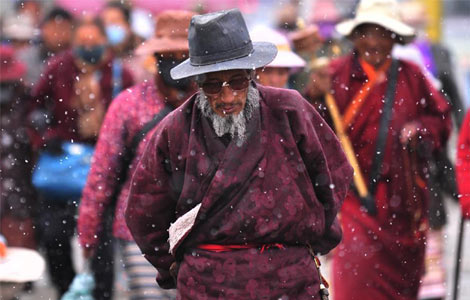
 Snowfall hits many areas of Tibet
Snowfall hits many areas of Tibet  Antiquated ideas source of Abe strategy
Antiquated ideas source of Abe strategy
 Storm wrecks havoc in S Britain, leaving 4 dead
Storm wrecks havoc in S Britain, leaving 4 dead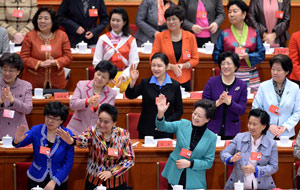
 Women's congress aims to close income gap, lift status
Women's congress aims to close income gap, lift status
 Sao Paulo Fashion Week held in Brazil
Sao Paulo Fashion Week held in Brazil
Most Viewed
Editor's Picks

|

|

|

|

|

|
Today's Top News
Hawaii debates over gay marriage legalization
Kerry urges Iran to show nuke program peaceful
Albright counsels fact not myth in relations
Is Obama's lack of transparency really his fault?
San Diego Symphony debuts at Carnegie
Lang Lang takes on UN `Messenger of Peace’ role
Fonterra botulism scare laid bare in board inquiry
At 72, China's 'Liberace' still wows fans
US Weekly

|

|
